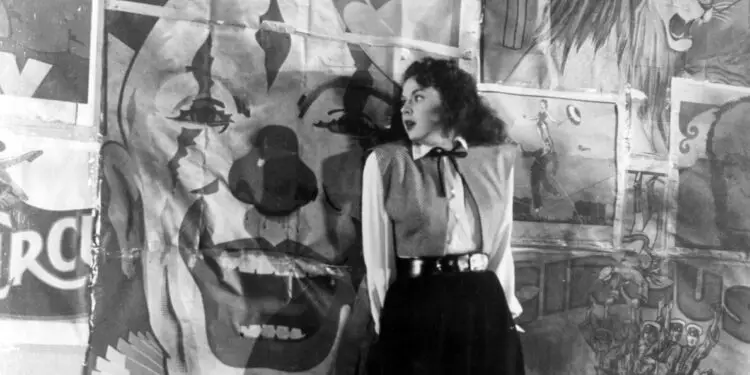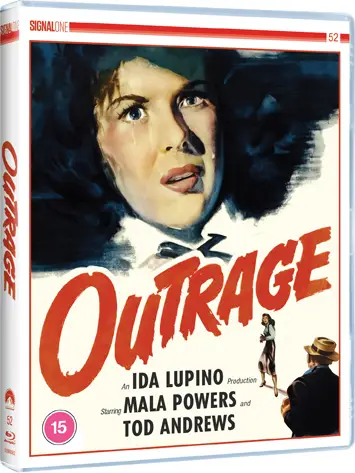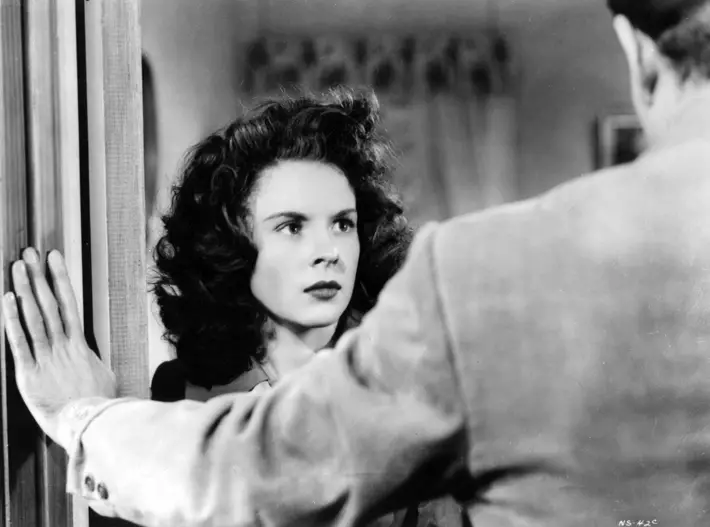Outrage (1950) – Film Review

Director: Director: Ida Lupino
Cast: Mala Powers, Tod Andrews, Robert Clarke
Certificate: 15
By Sarah Morgan
Fancy watching something daring, stylish and gripping?
 Outrage is all of those things and more. Made in 1950 on a shoestring budget, it deals with the kind of subjects – rape and mental health – we would probably still find difficult to handle today, never mind more than 70 years ago.
Outrage is all of those things and more. Made in 1950 on a shoestring budget, it deals with the kind of subjects – rape and mental health – we would probably still find difficult to handle today, never mind more than 70 years ago.
“Trauma”
Back then, the Hays Code, which was brought in to enforce some kind of morality in Hollywood movies, was still in place, so certain topics and storylines were out of bounds. Certainly anything overtly sexual was a big no-no.
So full marks should go to Ida Lupino, the director and co-writer, for managing to get her film past the censors. Perhaps they were sensible enough to realise that a story such as this, which never sensationalises the subject matter, could perform an important social act by openly portraying them. Also, Lupino films it in such a way that you never actually see the event, but you nevertheless feel the victim’s pain.
The story follows Ann, a pretty bookkeeper looking forward to marrying her long-term boyfriend Jim – until she’s raped after leaving work late. The perpetrator is a man she’s seen every day; he runs the concession stand outside her office. Unfortunately, the young woman’s trauma means she blanks out his face; all she can remember about her attacker is that he had a scar on his neck.
Utterly broken, she feels unable to return to her old life; Jim and her family, although well-meaning, don’t seem to be able to help. As a result, Ann runs away, eventually rocking up in a small rural town where the local clergyman offers her hope and understanding. She eventually finds a job and home there, but the terrors of recent times won’t go away.
“Remarkable achievement”
Her horrific memories are always simmering under the surface, and eventually break loose…
Mala Powers made her movie debut in Outrage, which is incredible, because her performance as Ann is extraordinary. The character is sweet-natured and somewhat naive, but she brings a depth to the role of someone far older with much more experience. The rest of the cast are pretty much all unknowns, which doesn’t quite give the production the air of a documentary, but it does mean viewers don’t have pre-conceived ideas about their characters.
Lupino, an acclaimed actress, was one of the few female directors working at that time, and used the films she made via her own production company to deliver important social messages. As a result, Outrage does get a little preachy and soapy towards the end, but it’s still a remarkable achievement, and one that must have shocked 1950s cinema goers and deserves to be better known now.










